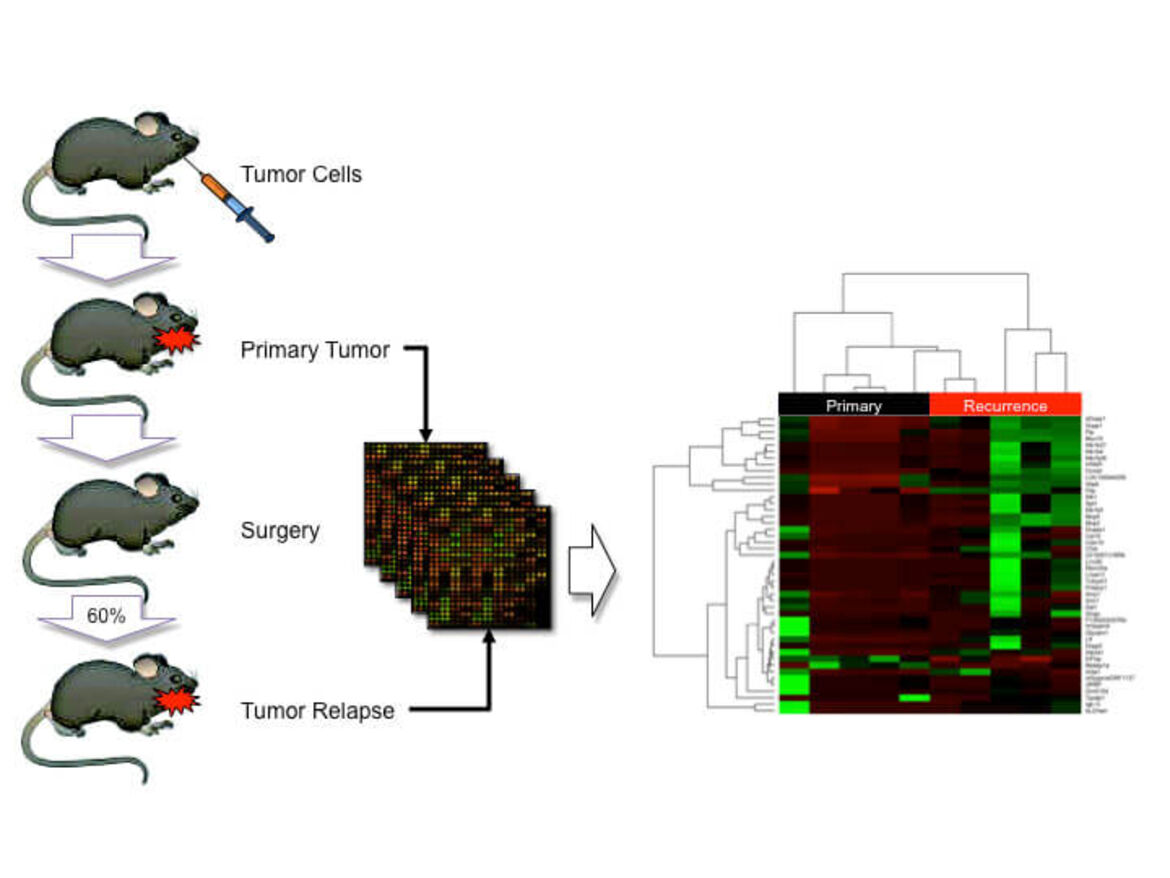Molecular Mechanisms of Treatment Failure
HNSCC is one of the most prevalent and lethal cancers worldwide and mortality mostly results from loco-regional recurrence and metastasis. Despite its significance, our knowledge on molecular, cellular and environmental mechanisms that drive malignant progression remains largely elusive, and there are limited therapeutic options for advanced cancers, with only negligible clinical benefit. Recently, we applied global gene expression profiling with samples derived from an orthotopic floor-of-mouth squamous cell carcinoma model in miceand identified a list of genes with differential expression between primary and recurrent tumors.One differentially expressed gene codes for Myb-binding protein 1a (MYBBP1A), which is known as a transcriptional co-regulator that physically interacts with nuclear transcription factors, such as NFKB and p53. We provided experimental evidence that MYBBP1A is an important molecular switch in the regulation of tumor cell proliferation versus migration in HNSCC and it will be a major challenge for the future to proof the concept whether regulation of MYBBP1A expression and/or function could serve as a novel option for translational oncology.





